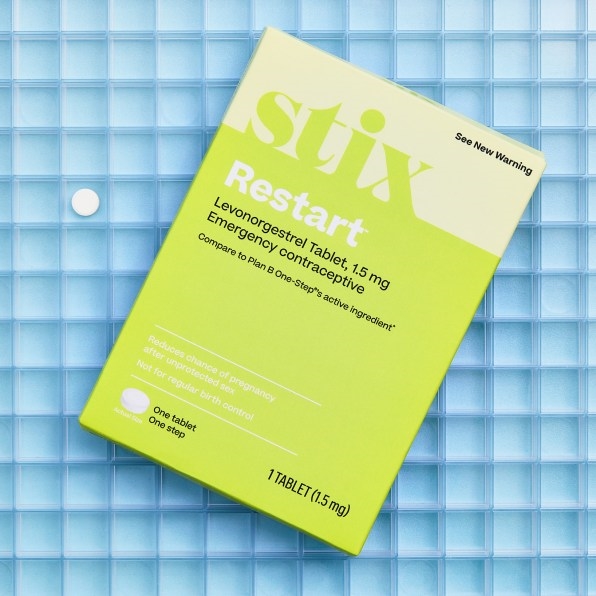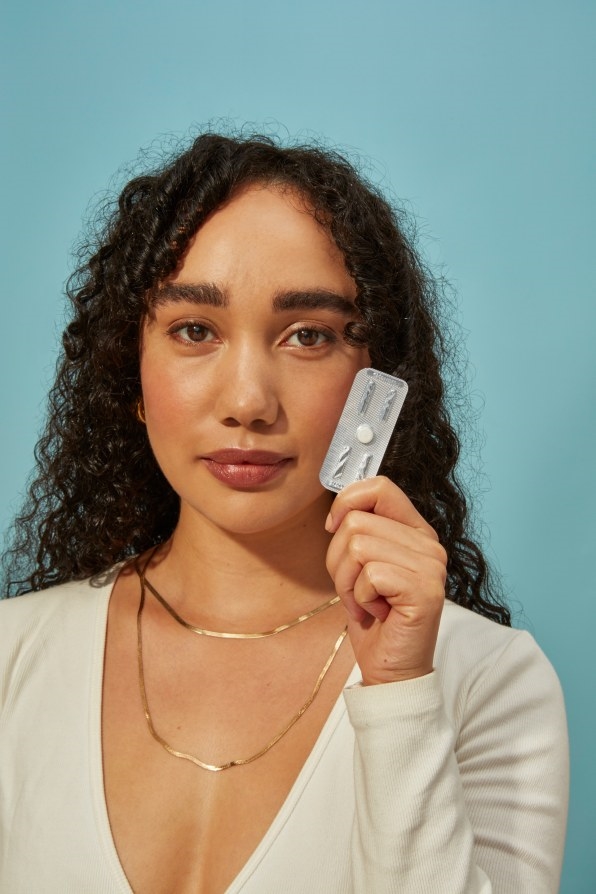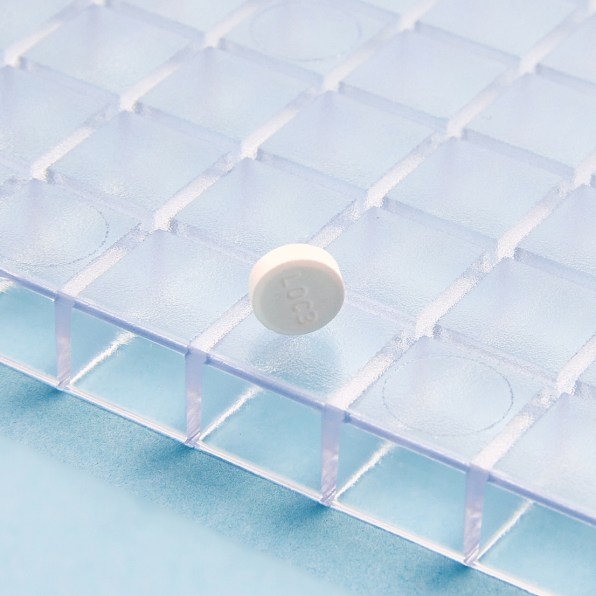Post-Roe, the morning after pill will be crucial. Startups are racing to increase access
The Supreme Court is poised to overturn Roe v. Wade. When that happens, 13 states have trigger laws that will automatically ban abortion, and many other states will move to further restrict access. Emergency contraception, which is taken within days of unprotected sex, will become even more important.

A wave of direct-to-consumer brands—including Wisp and Nurx—are working to make it easier to access these pills, which don’t require a prescription. Stix, a three year old startup, is the latest. Today, it’s debuting its own $38 emergency contraception pill, Restart, and launching a fund to make the pills free to women in need. It’s also rolling out billboard ads close to crisis pregnancy centers, which focus on preventing women from getting an abortion.

Jamie Norwood and Cynthia Plotch founded Stix to make over-the-counter women’s health products more easily accessible. It launched by selling pregnancy and ovulation tests, and then expanded to include a line of urinary tract and yeast infection items. All of its products are available online, along with information to help women navigate related health concerns.

In May, when news broke that the Supreme Court might overturn Roe, online searches for the morning after pill surged more than 160%. Once the decision is issued this summer, there will likely be another surge, including women who are stockpiling it for the future. Wisp, a website that sells sexual health products, echoes this, saying demand for emergency contraception pills has been up by 50% since May and it’s preparing for an even greater surge if Roe falls.
By launching Restart, the Stix founders hope to position themselves as a vital resource for women navigating the infringement on their rights. All the pills on the market, including the popular brands Plan B and Ella, work the same way: They release the hormone levonorgestrel, which delays ovulation, thereby preventing pregnancy from occurring when taken shortly after sex. These pills would remain legal even in “trigger” states even if Roe is overturned. That said, it is possible that some states will move to restrict it in the future. “We’re following this issue closely,” says Wisp CEO Ahmad Bani. “Our goal is to increase access as much as possible, while staying within the bounds of the law.”

While many people rush to buy the pill after unprotected sex, Planned Parenthood advises people to buy it before they need it, since it works better the sooner you take it. But Plotch notes that it takes privilege to be able to load up on these pills, because of the cost but also the stigma surrounding it. “In some communities, there is a lot of stigma around buying emergency contraception and many are worried about their partner or parents finding out,” she says. “Being able to buy pills discreetly online is very important for some people.” All of Stix’s products come in unmarked packaging, and there’s an option to ensure that credit card statements also don’t reference Stix. “Privacy allows women to feel like they have more control over their experience,” Plotch adds.
Andrea Swartzendruber, an associate professor at the University of Georgia’s College of Public Health who focuses on reproductive rights, agrees that many women who are at risk of an unwanted pregnancy don’t have easy access to these pills. In her reproductive epidemiology class, she asks students to put themselves in the shoes of a 15-year-old who had unprotected sex and doesn’t want to get pregnant. “It’s not easy,” Swartzendruber says. “Even if you do happen to have a pharmacy nearby, transportation might be a problem. And if you manage to get there, the morning after pill can cost $40 to $50, which is cost prohibitive to a young person or someone with a low income.”
Bani says that Wisp has tried to make emergency contraception as inexpensive as possible by selling them for far less than most drugstores: Plan B costs $17, and Ella costs $22 on its site. “We’re not making much money on these products,” he says.
Stix’s pill costs $38. But it has just launched a Restart Donation Bank, which aims to provide free morning after pills to women in need. They can either reach out directly to the brand to get it for free, with no questions asked, or go through one of the brand’s two nonprofit partners, which include Jane’s Due Process in Texas and the Utah Abortion Fund. (Stix is currently working to bring on more nonprofits.) The fund has raised $60,000 so far, via customer donations on its website and from brands like Universal Standard and Mara Hoffman. Still, many companies didn’t want to get involved. “A lot of business leaders we reached out to said they personally support this cause, but they last time they posted about reproductive rights on their social media, they faced a backlash,” Plotch says.”Emergency contraception has become a political issue, and they don’t want to get involved in politics.”

Swartzendruber sees any effort to improve access to emergency contraception as a good thing. And since many young people are comfortable with finding and buying products on the internet, websites like Stix can be particularly helpful. She says some reproductive health nonprofits are also working to give away the morning after pill for free. Planned Parenthood, for instance, lets people request the pill for free or at low cost. But Swartzendruber points out that there are a lot of misconceptions about the pill, which might prevent women from requesting it in the first place.
Crisis pregnancy centers play a role in spreading this misinformation, Swartzendruber says. She’s created a database that tracks the more than 2,500 centers across the country, and, in 2018, she published an academic paper that analyzed the content they put out. “We looked at the health information they presented on their websites and we found a lot of inaccuracies,” she says. “They called emergency contraception an abortive agent and highlighted risks that just aren’t there. They say there’s no safety information about overdoses, but the truth is nobody is getting addicted to the morning after pill or overdosing on it.”
Today, Stix is unveiling billboards ads located within five miles of crisis pregnancy centers in Ohio, Arkansas, Utah, Missouri, and Kentucky, which are among the states with trigger bans. These billboards will advertise Restart while also highlighting the absurdity of restricting abortion. For instance, one says, “In Ohio, a dog can legally get an abortion. But her owner is begging for reproductive rights.”
Stix’s founders acknowledge that the morning after pill won’t be useful to women who are already several weeks pregnant and might seek out a CPC because they need an abortion. But they believe their billboards are a form of counter-programming to the misinformation spread by CPCs, encouraging women to seek out science-backed information about emergency contraception on Stix’s website.
Swartzendruber says this is a good thing. “There’s low awareness about emergency contraception,” she says. “Any way to get more information out there is valuable, and it will probably be even more important post-Roe.”
(7)


